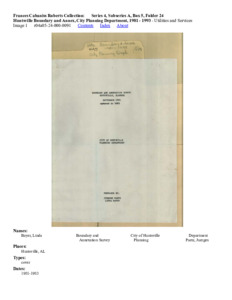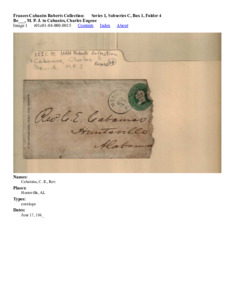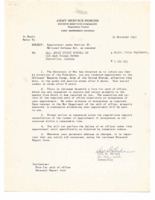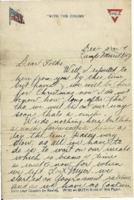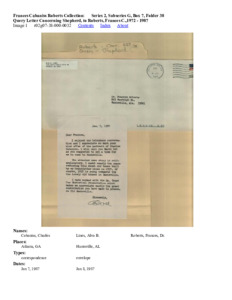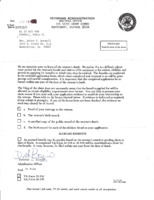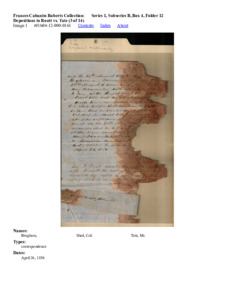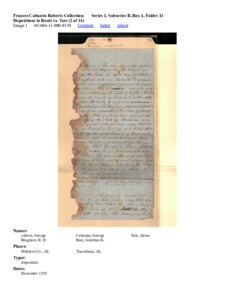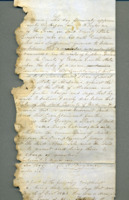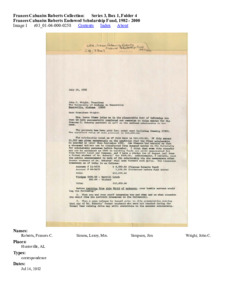
Browse Items (4798 total)
Sort by:
-
Huntsville Boundary and Annex, City Planning Department, 1981 - 1993
Utilities and Services -
Correspondence to Edwin D. Burwell Jr. concerning Appointment under Section 37, National Defense Act, as amended.
This correspondence offers Edwin D. Burwell Jr. employment in the Officer's Reserve Corps. -
World War I diary of Don Betsinger.
Betsinger served in the U.S. Army during World War I. Born on March 5, 1900, he was from Chicago, Illinois and enlisted as a private in the 12th Field Artillery in 1917. He embarked for France from Hoboken, New Jersey in early January 1918. The diary appears to include letters to his family and is missing many pages. The entries include opinions about the war, observations of fellow soldiers, and experiences in combat, including discussion of heavy shelling and mustard gas during the Battle of Belleau Wood in June 1918. Many of the descriptions are graphic in nature. Betsinger survived the war and later moved to Monte Vista, Colorado, where he operated the Triangle Tourist Camp in the 1940s. His wife, Elda Aden Betsinger, was a public school teacher. He died in San Diego, California in January 1980. -
Letter from Dorothy L. Biggio to Mrs. Helen Burwell concerning the death of Edwin D. Burwell Jr.
The letter discusses the application for benefits due to Edwin D. Burwell Jr.'s death. -
Statement Letter of D. H. Bingham.
This is the statement of Daniel H. Bingham taken in December of 1855 regarding a murder that occurred in Alabama that occured in 1842. In his statement, D. H. Bingham accuses Abner Tate of the murder of one Jonathan K. Rier of Tuscaloosa. He also accuses Tate's slave, George Cabiness, of aiding and abetting in the committing of the crime. Following Bingham's statement, a statement of support is taken from Barbara Hazel placing a "stranger" in the home of Abner Tate the night of the murder. The next page is a second statement given by D. H. Bingham regarding the murder of Charles B. Sawyer of Coffee County, Tennessee and accusing Abner Tate and his slave, George Cabiness of the crime. His statement is followed by the witness, Barbara Hazel's statement that placed the victim in the home of Abner Tate.
